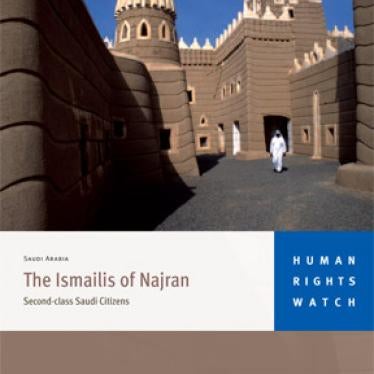The prominence of Saudis among the September 11 2001 plotters and in the al-Qaida leadership has put Saudi Arabia under intense international scrutiny in recent years. In response, the kingdom has reined in Islamist extremists and urged its people to desist from joining the insurgency in Iraq.
Internationally, Saudi Arabia has started to advocate for greater religious tolerance. Last July, King Abdullah launched an interfaith conference in Madrid, inviting representatives not only of various Christian denominations but also Jewish and Shinto religious leaders.
At home, Crown Prince (now King) Abdullah launched a national dialogue in 2003, in which carefully selected members of the Saudi elite voiced opposing opinions on delicate matters, including religious extremism. In the same year a leading Saudi cleric from the Sunni establishment, Salman al-Awda, was photographed together with Hasan al-Saffar, a prominent cleric from Saudi Arabia's oppressed Shia minority.
All this is welcome in a country which, backed by petro-wealth, aspires to leadership of the Muslim world, is guardian of Islam's two holiest sites, and each year hosts the hajj, the pilgrimage to Mecca, which brings together Muslims of all branches and sects of Islam.
However, as a new report by Human Rights Watch reveals, Saudi Arabia's treatment of one of its own Muslim religious minorities, the Ismailis, still leaves much to be desired. The report provides evidence of Saudi government discrimination against Ismailis in employment, education, religious practice, and in the justice system.
Saudi Arabia's Ismailis are estimated to number up to one million, mostly living in the southwestern Najran province, a remote area which was the House of Saud's last territorial conquest, in 1934. The Ismaili community is a subset of the country's Muslim Shia minority, which represents 10 to 15% of the Saudi population. Discrimination against Ismailis is part of a pattern of discrimination against the wider Shia community.
School textbooks teach Saudi students that adhering to the Ismaili faith constitutes the sin of "major polytheism", effectively declaring its adherents not to be Muslims at all, but infidels. In August 2006, Saudi Arabia's highest judge, Shaikh Salih al-Luhaidan, told an audience of hundreds that Ismailis "outwardly appear Muslim, but inwardly, they are infidels". A subsidiary body to the council of senior religious scholars, tasked with officially interpreting Islamic faith, ritual, and law, in April 2007 termed Ismailis "corrupt infidels, debauched atheists".
In April 2000, the authorities in Najran arrested an Ismaili cleric, accusing him of sorcery. In response to a violent demonstration for the cleric's release, the governor of Najran, Prince Mishal, had hundreds of Ismailis arrested and dozens tortured and tried in secret trials in Riyadh. He then purged four hundred Ismaili public officials from the local bureaucracy.
Since these violent events, discrimination against Ismailis in employment has continued. Where previously seven of the 35 heads of local government departments were local Ismailis, now only one remains. Almost no Ismailis work as senior security personnel or as religious teachers.
In March 2006 a judges respectively annulled the marriage of an Ismaili man to a Sunni woman because of his lack of religious qualification. In May the same year another court barred an Ismaili lawyer from representing his Sunni client. In 1996 judge in Najran sentenced an Ismaili man, Hadi al-Mutif, to death for having "insulted the prophet". Last April the Saudi intelligence services detained an Ismaili Shaikh, Ahmed bin Turki al-Sab, because he petitioned the king to remove Prince Mishal. He remains in prison.
Persistent discrimination against the Ismaili community of Saudi Arabia is just one aspect of Saudi Arabia's poor human rights record. Since September 11 the government has indicated that it wants to change Saudi Arabia's image as a closed, repressive and intolerant society. It has taken some superficial steps towards reform. But if it wants to be seen to be challenging religious extremism rather than pandering to it, the leaders in Riyadh will have to do more than convene a few international conferences on religious tolerance.
If it wants to be taken seriously as a voice of moderation and tolerance, Saudi Arabia needs to make serious efforts to clamp down on the institutional discrimination against its own religious minorities, like the Ismailis.







